Bretschger, Lucas. "Getting the Costs of Environmental Protection Right: Why Climate Policy Is Inexpensive in the End". Ecological Economics. Accessed January 16, 2025. https://www.sciencedirect.com/...
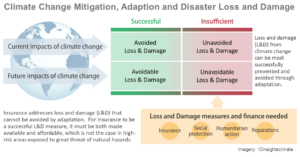
The misconception that stringent climate policies are too costly is widespread among political decision-makers and the public and an often-used argument by governments for sluggish policy making. However, the cost argument ignores the long-term economic benefits of policy changes and is build on the decomposition of environmental impact into separate population, income, and technology effects. This method of decomposing environmental impact calculates costs of climate policy that are far too high. The aggregate economic assessment of climate policies in a holistic economic-ecological system shows economic growth is only initially moderately reduced by a strict climate policy. The cost of climate policy overlooks its long-term benefits, which depend on avoided climate loss and damages.
Posted on 16/01/25
Recent Abstracts
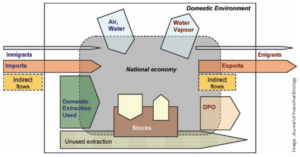
The Use of Natural Resources in the Economy: A Global Manual on Economy Wide Material Flow Accounting
Material flow accounting provides a statistical framework measuring natural resource extraction, trade in natural resources, waste disposal and emissions. Domestic material consumption and material footprint are used as a proxy for overall environmental pressure within a national economy and the impact of a national e ...
Posted on 18/11/21
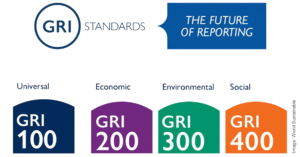
Universal Standards
The GRI Standards are global public reporting best practices on economic, environmental and social impacts. Reporting based on the standards provides information about an organization’s positive or negative contributions towards sustainable development for integration into its strategy, to identify financial risks and ...
Posted on 17/11/21

ESG Investing Has a Blind Spot That Puts the $35 Trillion Industry’s Sustainability Promises in Doubt: Supply Chains
There's some discrepancy in how such rating agencies as Bloomberg, MSCI and Sustainalytics are measuring the ESG risk in the performance of supply chains. To accurately measure a company’s ESG risks, also its end-to-end supply chain operations must be considered. The EU's new Sustainable Finance Disclosure Regulation ...
Posted on 16/11/21
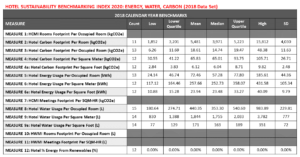
Hotel Sustainability Benchmarking Index 2020: Carbon, Energy, and Water
The Cornell Hotel Sustainability Benchmarking Index (CHSB) is the hotel industry’s largest annual benchmarking of energy, water, and carbon emissions. It is an industry-led global data collection and benchmarking initiative, with more than 18,000 hotels contributing information on their energy and water usage and gree ...
Posted on 16/11/21
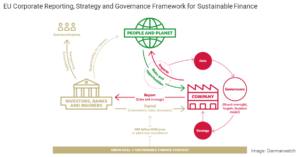
SDG-Related Initiatives
PRI lists 25 SDG reporting initiatives according to focus. Some are a mechanism for disclosure and reporting on SDG investments or impact financing. Others allow for measuring and reporting on the implementation of the SDGs by businesses and their alignment with corporate sustainability benchmarks. United Nations Gl ...
Posted on 15/11/21
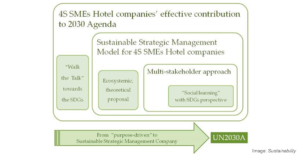
Sustainable Strategic Management Model for Hotel Companies: A Multi-Stakeholder Proposal to ‘Walk the Talk’ toward SDGs
This paper proposes a sustainable strategic management model (SSMM) for small- and medium-sized (SME) hotel companies, which have to contribute to the 2030 Agenda. Adding the SDG perspective, it is a holistic proposal with a multi-stakeholder approach to enable them to focus on the well-being of people and the planet. ...
Posted on 15/11/21
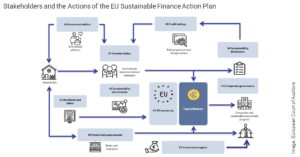
Will the EU Taxonomy Regulation Foster a Sustainable Corporate Governance?
EU securities regulation has established a taxonomy of environmentally sustainable financial activities that potentially supports sustainable corporate governance. This paper argues that including environmental sustainability in EU mandatory disclosure aligns the incentives of institutional investors with the interest ...
Posted on 14/11/21
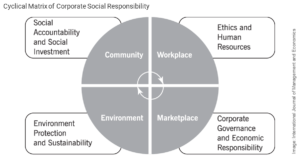
Accountability by Design? Exploring Design Characteristics of Corporate Social Responsibility Standards
Corporate social responsibility (CSR) standards are widely adopted instruments for supporting firms in becoming more accountable, while noncompliance limits their effectiveness and legitimacy. This paper investigates the design of 50 CSR standards across different standard types (principle-based, reporting, certificat ...
Posted on 14/11/21
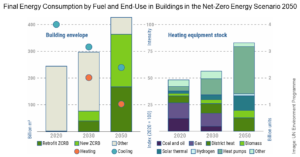
Global Status Report for Buildings and Construction: Towards a Zero‑Emission, Efficient and Resilient Buildings and Construction Sector
To limit additional global warming to below 2 degrees Celsius, countries have adopted policies and codes that have a future impact on the emissions and energy efficiency of buildings. Building emissions need to be reduced along their life cycle through a combination of reducing energy demand, decarbonizing the power s ...
Posted on 13/11/21

Ecocide as an International Crime
One solution to the widespread or long-term damage to the environment gaining support is to make ecocide a crime and punishable by international justice. Major events that massively destroy ecosystems would thus fall under the jurisdiction of the international criminal court. This would allow citizens to hold compani ...
Posted on 13/11/21
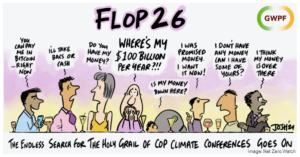
EU Accused of Being the ‘Missing Leader’ at COP26 Climate Talks
The role of the EU in the UN climate process has traditionally been to drive the talks and build the needed high ambition coalition. But, according to green groups, diplomats, observers and allies, the EU appeared at COP26 ineffective, constrained and inept at times. Where the EU was present and represented in negoti ...
Posted on 12/11/21
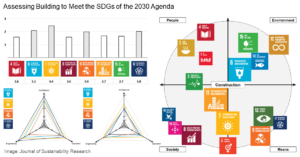
On the Role of Construction in Achieving the SDGs
Construction and real estate have been central to the debates on sustainable development. Where the dominant definition of sustainability in the built environment focuses on the environmental dimension, the UN Sustainable Development Goals (SDGs) offer new opportunities for the building sector to expand its focus. Gre ...
Posted on 12/11/21
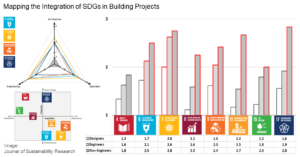
Integrating the Sustainable Development Goals in Building Projects
Building designers are attempting to integrate the 2030 Agenda and its Sustainable Development Goals (SDGs) into projects. This has limited the development of novel approaches as well as new building design methodologies that specifically aim at attaining the agenda’s targets. To help building design teams achieve th ...
Posted on 11/11/21
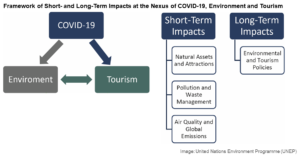
COVID-19, Environmental Impacts, and Implications for Tourism
Tourism in many countries, particularly in developing economies, depends largely on such natural assets as forests, coastlines and wildlife and are linked to such environmental conditions as clean air and water. Given the interdependency of tourism and the environment, the environmental impacts of COVID-19 have short- ...
Posted on 10/11/21
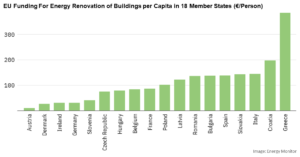
Europe Fails to Act on Energy Waste in Recovery and Resilience Plans
At least 37% of the EU Recovery and Resilience Facility (RRF) for pandemic recovery funding must be spent directly on climate-related actions. This study of the National Recovery and Resilience Plans (NRRPs) in 18 member states reveals that only 8% on average is allocated to energy renovation. Austria is the worst pe ...
Posted on 09/11/21

